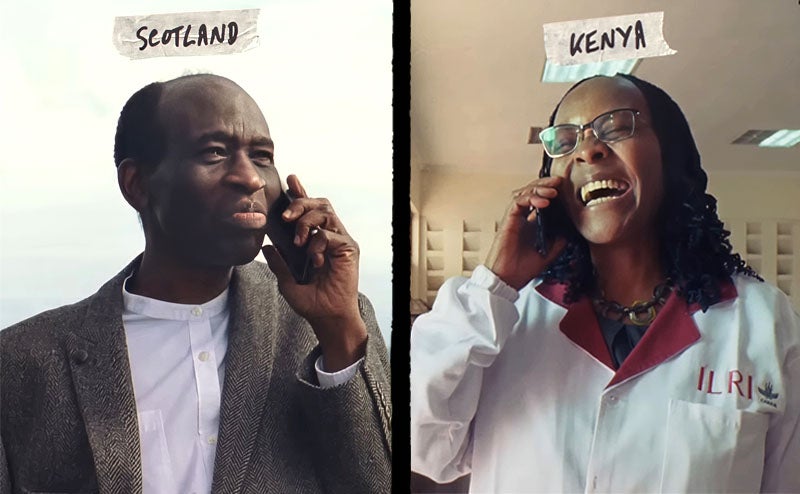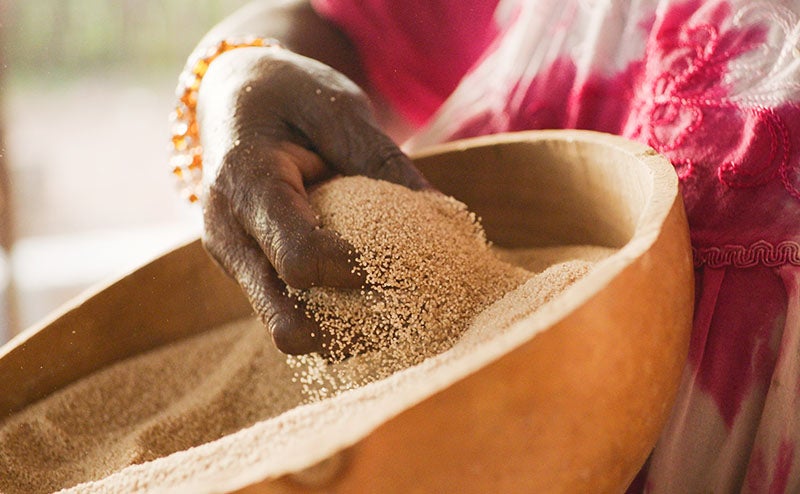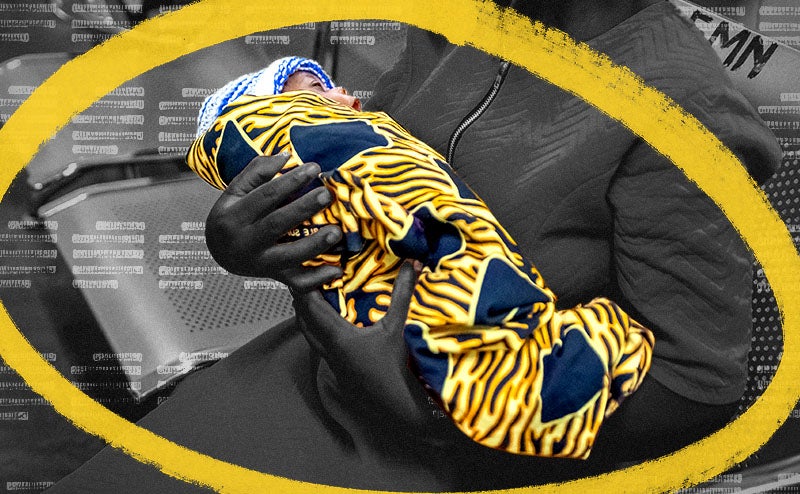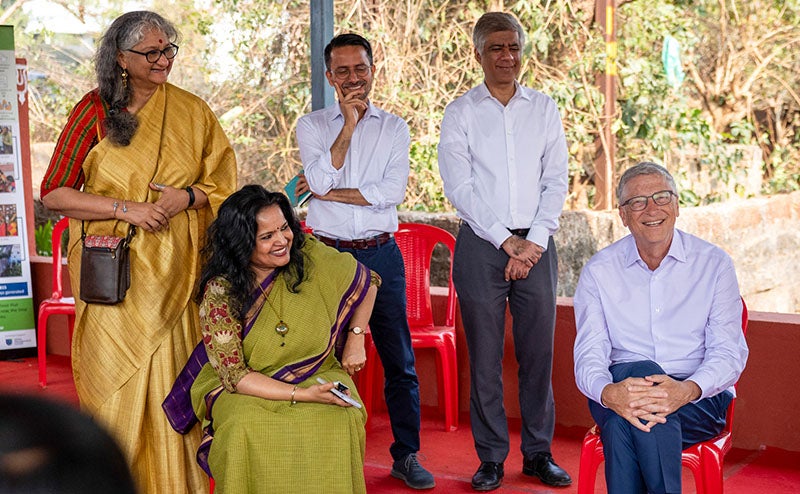The Ministry for the Future does a better job than any other book I’ve read of playing out, in a dramatic but realistic way, how high temperatures can literally kill people.
Have you ever visited a place you haven’t been in a while, and it somehow manages to feel both new and familiar? That’s how I feel every time I go back to Nigeria.
It was amazing to return to Lagos and Abuja this week. I’ve been fortunate to spend a lot of time in Nigeria over the last two-plus decades, but it’s been nearly five years since my last visit due to the pandemic. Nigeria—and especially Lagos—is one of the most dynamic, vibrant places in the world, and I am always blown away by how much it's changed. At the same time, I loved getting to catch up with old friends and reconnect in person with longtime partners. (Remote meetings are great, but it’s nice to meet face-to-face on occasion.)
This week also marked my first-ever trip to Niger. Our foundation has been working with talented Nigeriens for years to help ensure children's health and prevent the spread of polio, and it was exciting to see the country for myself and talk about the future of that work.
It was a great week. These were some of my favorite moments:
Nigeria’s next generation of innovators
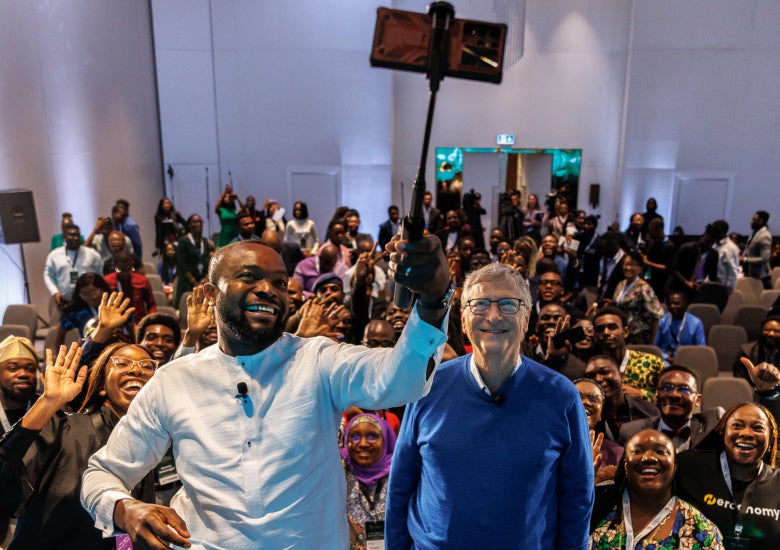
Nigeria is one of the youngest, fastest-growing countries in the world. The number of people between the ages of 20 and 40 is projected to double by 2050, from around 62 million today to 123 million. That’s a huge number of people who can use their passions and skills to help solve big problems—and I was excited to speak with some of them at the Youth Innovation Forum in Lagos. Students from the Lagos Business School and I talked about how you can make a difference while also turning a profit, how Africa can maximize the tremendous potential of its human capital, and why jollof rice is one of many good reasons to visit Nigeria.
An inspiring champion for maternal health
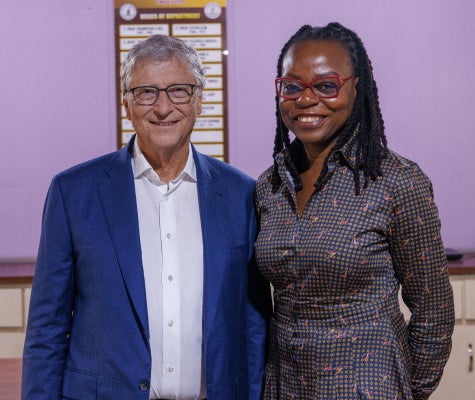
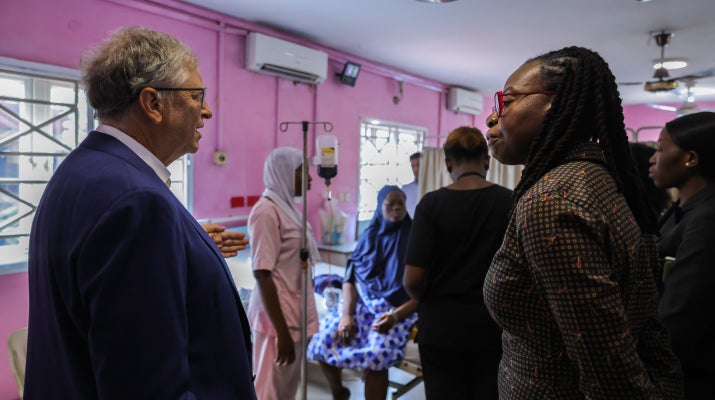
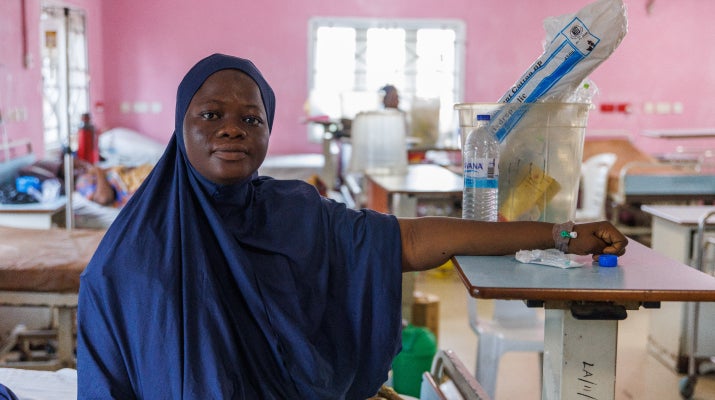
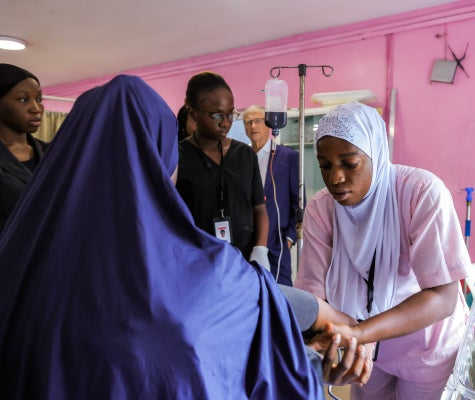
I met with Professor Bosede Afolabi at the Randle Maternity & Children’s Hospital, where I got to see firsthand her pioneering work on intravenous iron fusions. One of Dr. Afolabi’s patients had anemia—an often-dangerous condition created by low iron levels—after having an emergency C-section. She received a simple 15-minute treatment that was really going to help her recover. It was awesome to see such promising work up close. I’m hopeful IV iron could one day save hundreds of thousands of lives.
Catching up with Aliko Dangote
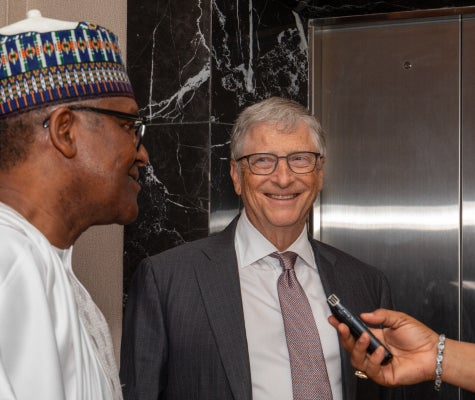
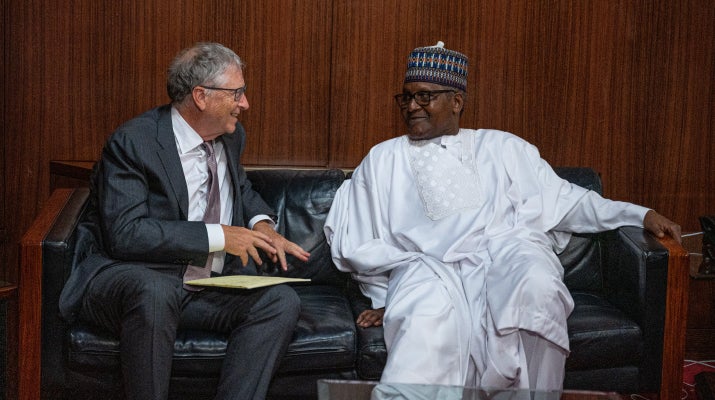
I’ve been lucky to call Aliko Dangote a friend for many years. We have a ton in common: Both of us started successful businesses and then, for our second acts in life, we chose to start foundations aimed at improving health and education. I got to spend lots of time with him this week, and it’s always super fun to catch up with him in person. He’s been an invaluable partner to our foundation over the years—especially in his native Nigeria—working together on issues like malnutrition, food fortification, and polio.
Checking out the future of agriculture in Lagos
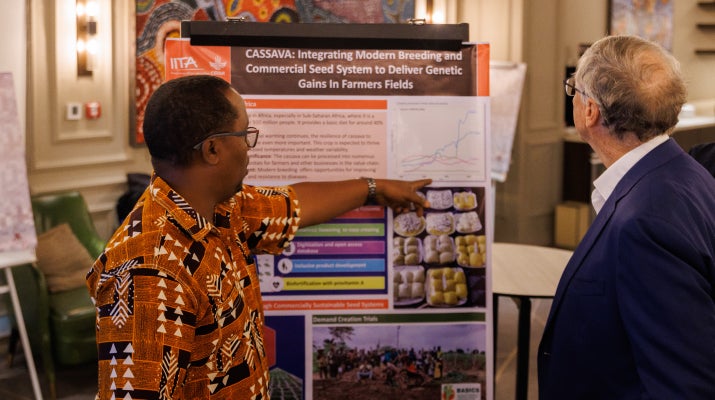
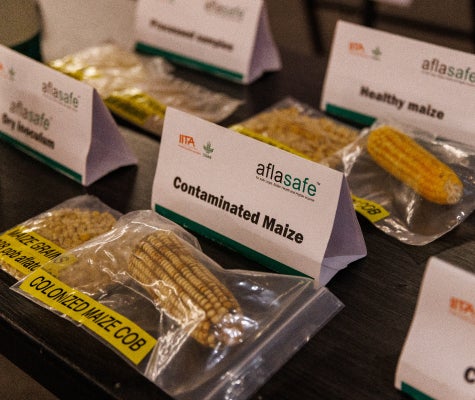

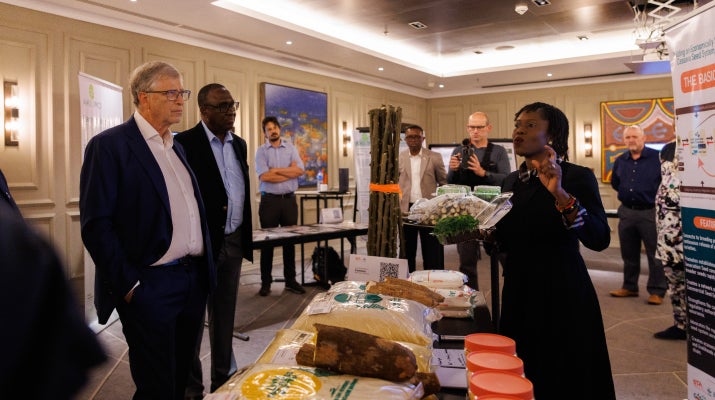
Nigeria is home to some of the most interesting work being done in agriculture, and I had the opportunity to check out a few of the most promising innovations in the pipeline. I was especially excited to hear more about Aflasafe, a product that protects crops from a deadly compound called aflatoxin that is created by a fungal infection. (It’s estimated that nearly a third of all liver cancer cases in Africa are due to aflatoxin exposure.) They have a novel approach to scaling up and supporting farmers, and I’m optimistic their product will save many lives.
Meetings with leadership
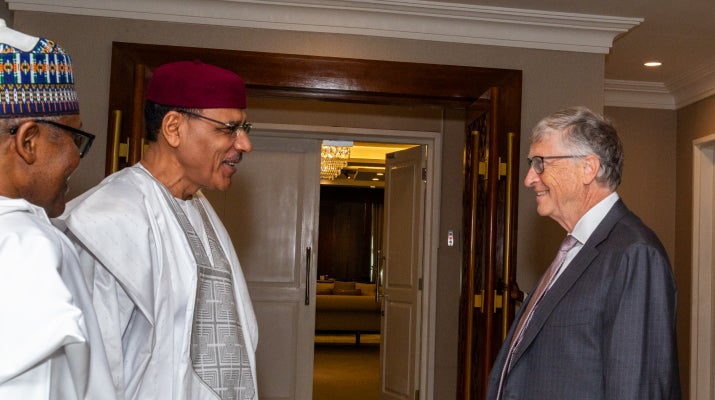
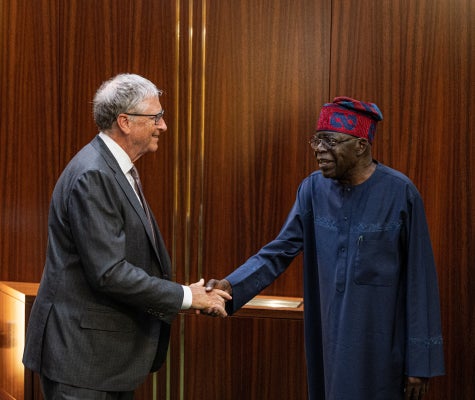
I was honored to meet with President Mohamed Bazoum (left) in Niamey, Niger and President Bola Ahmed Tinubu (right) in Abuja, Nigeria, as well as with the Sultan of Sokoto and traditional leaders from across Nigeria (below). It was inspiring to hear all of them talk about their work to make progress on today’s biggest challenges.
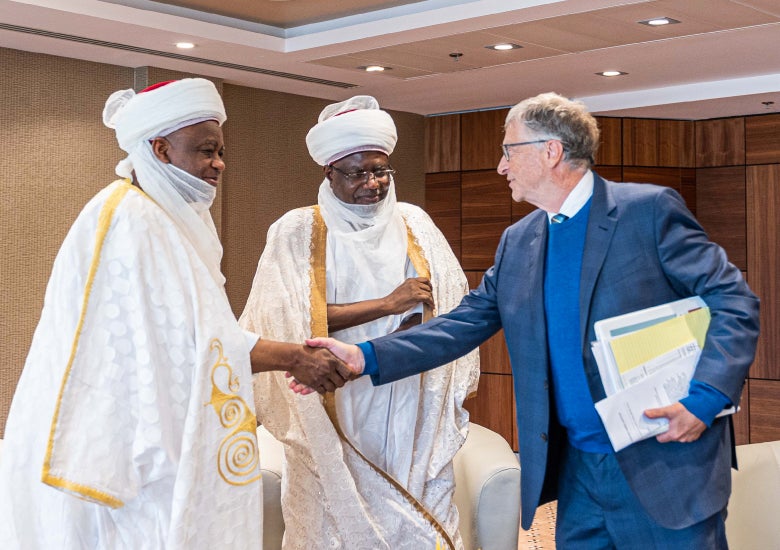
Sitting down with Ebuka Obi-Uchendu
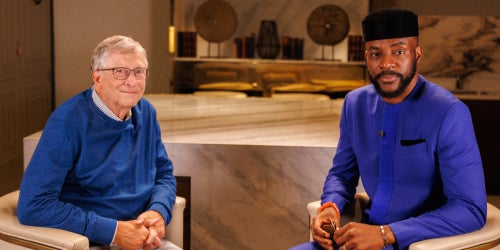
Ebuka is probably best known as the host of Nigeria’s version of Big Brother, but I got to know him when he hosted our foundation’s Goalkeepers event last year. I loved getting the chance to catch up with him in Lagos, where we talked about the power of youth innovation, climate change, and more.
Making solar power more accessible
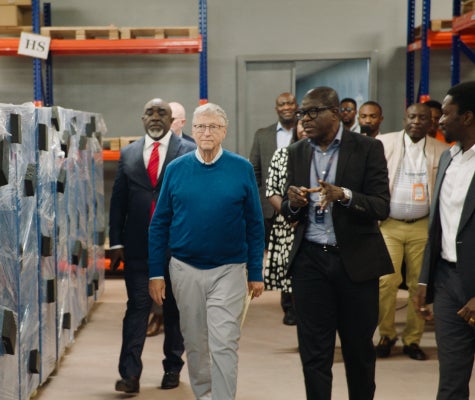
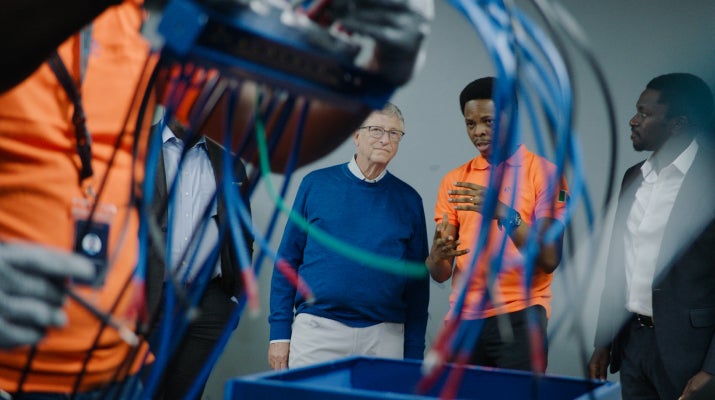
Nigeria faces serious energy challenges, including an unreliable grid that often leaves people without power for hours at a time. Many households and small businesses rely on loud, dirty diesel generators to make up for it—but a Breakthrough Energy Ventures–backed company called Arnergy is hoping to change that. It was super cool to see their hybrid solar power generator and lithium storage unit in person.
Improved tools and data to help babies survive and thrive
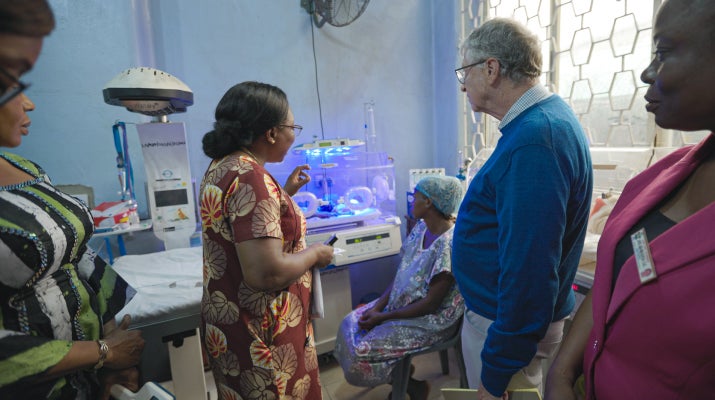
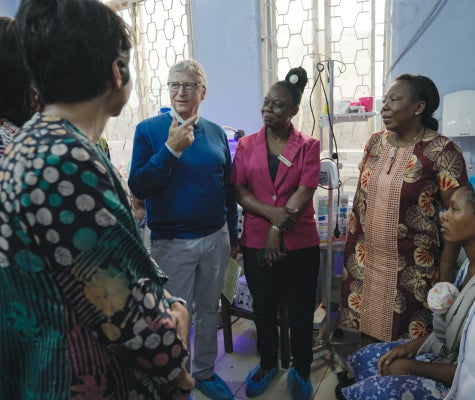
I’ve visited a number of neonatal care units at hospitals throughout my career. They’re always one of the most intense places to see in person. It’s a high stress environment, and a program called NEST360 is working to ease some of the burden. NEST360 partners with hospitals in four countries across Africa to implement critical innovations for sick newborns, like warmers and CPAP machines. It also uses data to improve outcome for these babies. (NEST stands for Neonatal Essential Solutions and Technologies.) I got to see firsthand how access to these technologies is saving lives at the Massey Street Children’s Hospital in Lagos.
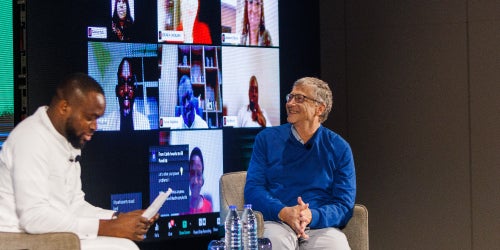
It was a busy but inspiring week in Nigeria and Niger. I left more convinced than ever that, with support, young people can develop innovative solutions to transform Africa’s future. I’m looking forward to continuing work with our foundation’s many outstanding partners across the region in the years ahead.
